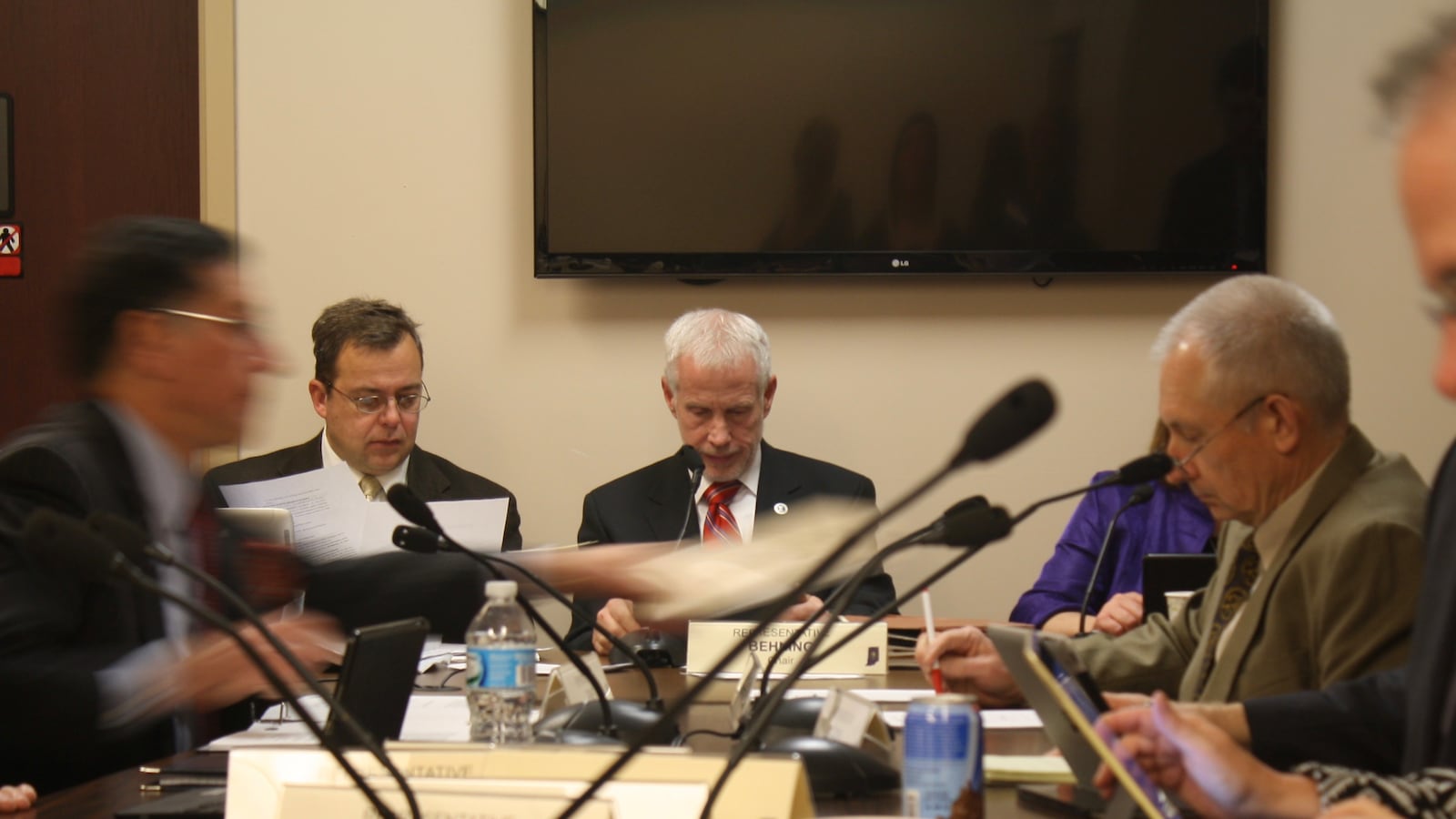Indiana House lawmakers signaled support today for a plan to loosen restrictions for private schools accepting state voucher dollars.
Two proposal were amended into the existing House Bill 1384, which is mostly aimed at clarifying how high school graduation rate is calculated. One would allow private schools to appeal to the Indiana State Board of Education to keep receiving vouchers even if they are repeatedly graded an F. The other would allow new “freeway” private schools the chance to begin receiving vouchers more quickly.
Indiana, already a state with one of the most robust taxpayer-funded voucher programs in the country, has made small steps toward broadening the program since the original voucher law passed in 2011 — and today’s amendments could represent two more if they become law. Vouchers shift state money from public schools to pay private school tuition for poor and middle class children.
Under current state law, private schools cannot accept new voucher students for one year after the school is graded a D or F for two straight years. If a school reaches a third year with low grades, it can’t accept new voucher students until it raises its grade to a C or higher for two consecutive years.
Rep. Bob Behning, R-Indianapolis, the bill’s author, said private schools should have the right to appeal those consequences to the state board.
Right now, he said, they “have no redress.” But public schools, he said, can appeal to the state board.
Behning said the innovation schools and transformation zones in Indianapolis Public Schools were a “perfect example” for why schools need an appeal process because schools that otherwise would face state takeover or other sanctions can instead get a reprieve to start over with a new management approach.
In the case of troubled private schools receiving vouchers, Behning said, there should be an equal opportunity for the state board to allow them time to improve.
”There are tools already available for traditional public schools and for charters that are not available for vouchers,” he said.
But Democrats on the House Education Committee opposed both proposals, arguing they provided more leeway to private schools than traditional public schools have.
“Vouchers are supposed to be the answer, the cure-all, the panacea for what’s going on in traditional schools,” said Rep. Vernon Smith, D-Gary. “If you gave an amendment that said this would be possible for both of them, leveling the playing field, then I would support it.”
The second measure would allow the Indiana State Board of Education to consider a private school accredited and allow it to immediately begin receiving vouchers once it has entered into a contract to become a “freeway school” — a type of state accreditation that has few regulations and requirements compared to full accreditation. Typically, it might take a year or so to become officially accredited.
Indiana’s voucher program is projected to grow over the next two years to more than 38,000 students, at an anticipated cost — according to a House budget draft — of about $160 million in 2019. Currently in Indiana, there are 316 private schools that can accept vouchers.
The voucher amendments passed along party lines last week, and the entire bill passed out of committee today, 8-4. It next heads to the full House for a vote, likely later this week.

